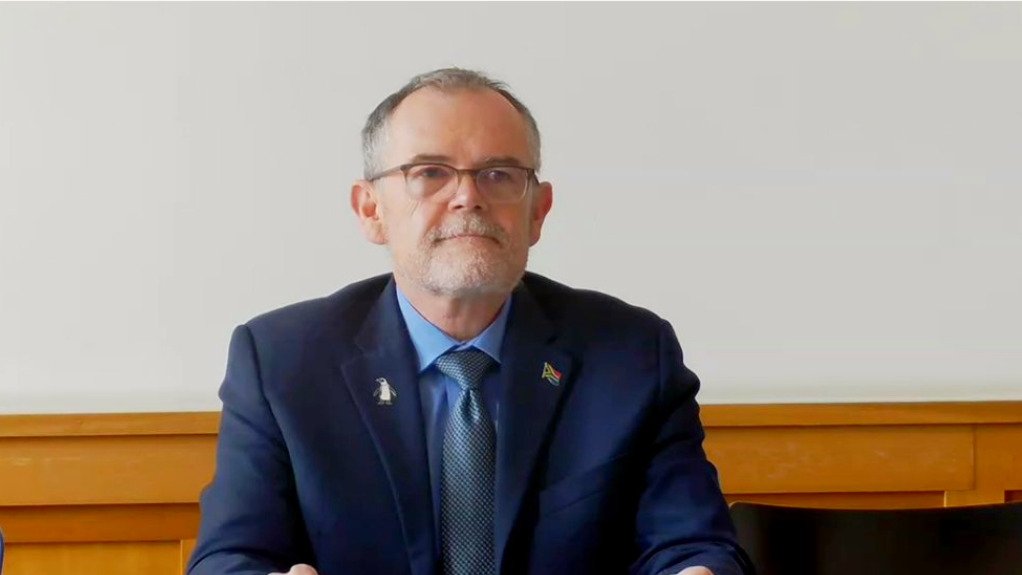Climate finance for developing countries among key outcomes expected from COP30
With fewer than 30 days before the COP30 climate conference in Belém, Brazil, South Africa has been strengthening its collective resolve to place people, planet and prosperity at the centre of climate action, Forestry, Fisheries and the Environment Minister Dr Dion George has said.
Addressing delegates in a stakeholder engagement session on October 20, he confirmed that the work of the Environment and Climate Sustainability Working Group under South Africa’s G20 presidency had concluded, while the publishing of the new Nationally Determined Contribution (NDC) is imminent.
He added that South Africa’s NDC is aligned with the country’s Climate Change Act and aims to balance environmental integrity with social justice, ensuring the transition to a low-carbon economy is inclusive.
COP30 will mark ten years since the adoption of the Paris Agreement and the five-year mark to achieve the 2030 deadline for the UN Sustainable Development Goals.
It is expected that many countries will be submitting updated NDCs this year, which are the commitments that will determine whether global warming is limited to 1.5 ˚C above preindustrial levels.
George anticipated ambitious outcomes to be announced at the conference, in respect of the Sharm el-Sheikh Mitigation Ambition and the United Arab Emirates Just Transition Work Programme (JTWP), both of which aim to advance low-carbon development pathways and practical cooperation between developed and developing countries.
“Climate adaptation remains a top priority for Africa. We are already feeling the effects of a changing climate through extreme rainfall, flooding and unseasonal snowfall.
“Our adaptation goals focus on water and sanitation infrastructure, disaster risk management and climate-related health systems, food security, resilient human settlements, early warning systems, ecosystem restoration and capacity building across all spheres of government,” George explained.
While the delegation attending COP30 will be downsized this year, with the National Business Initiative having confirmed there will be no pavilion this year, some of the key outcomes that the South African delegation will monitor include that the new Global Goal on Adaptation is finalised through the Belém Work Programme.
George said South Africa supported a concise set of indicators, about 100 of them, to measure progress and to ensure developing countries received the means of implementation they required.
Additionally, because climate finance remained central to meaningful action, the Minister said COP30 should advance the New Collective Quantified Goal adopted at COP29 and the Baku-to-Belém Roadmap. These initiatives aim to mobilise $1.3-trillion a year in funding for climate change-related development by 2035.
“We expect the COP30 presidency to present a well-consulted plan that addresses the barriers that developing countries face in accessing climate finance,” George said.
Importantly, he added that developing countries required predictable and accessible funding for climate change mitigation, adaptation and loss and damage, in the form of grants and concessional finance, not new debt.
Developed countries have a legal obligation under Article 9.1 of the Paris Agreement to provide this support.
Another positive outcome for developing countries following COP30 would be the operationalisation of the Loss and Damage Fund, with capitalisation that is responsive to the needs of vulnerable nations, particularly in Africa. This support relates only to loss and damage occurred as a result of climate change.
George said South Africa would continue to advocate for recognition of Africa’s special needs and circumstances, its limited historical responsibility for emissions and the need for tailored support for adaptation and just transitions.
To this end, George suggested the Santiago Network and its technical agencies must be empowered to provide hands-on assistance where it was most needed. In Africa’s case, this meant strengthening early warning systems, mapping high-risk zones and developing social protection systems.
“The Loss and Damage Fund will only be meaningful if it reaches communities on the ground rather than remaining trapped in bureaucracy,” George pointed out.
Department of Forestry, Fisheries and the Environment climate change and air quality deputy director-general Maesela Kekana confirmed that the Loss and Damage Fund would receive funding requests from early 2026, with more than 170 entities having been accredited to provide support, including the Development Bank of Southern Africa.
OTHER EFFORTS
Adding on to comments about the JTWP, George said the programme must evolve into a practical instrument that supported inclusive and equitable transformation – beyond energy systems – to address the full social and economic dimensions of the transition.
He reiterated his department’s commitment to building the skills and industries that would make a low-carbon economy transition real and inclusive, from the miner in Mpumalanga to the small business owners in townships, who all deserved a stake in a cleaner and fairer future.
In highlighting other concerns, George said the Enhanced Transparency Framework under the Paris Agreement must be adequately supported. “Transparent reporting builds credibility, attracts investment and strengthens policy.”
Kekana added that the new reporting system, the Enhanced Transparency Framework, was being formulated with clear solutions based on experience shared in submissions and during mandated events.
For George, the world must move from pledges to practice. “Every decision taken in Belém must come with a plan for implementation, financing and accountability. COP30 must deliver real outcomes for the planet, for vulnerable communities and for future generations,” he emphasised.
Article Enquiry
Email Article
Save Article
Feedback
To advertise email advertising@creamermedia.co.za or click here
Press Office
Announcements
What's On
Subscribe to improve your user experience...
Option 1 (equivalent of R125 a month):
Receive a weekly copy of Creamer Media's Engineering News & Mining Weekly magazine
(print copy for those in South Africa and e-magazine for those outside of South Africa)
Receive daily email newsletters
Access to full search results
Access archive of magazine back copies
Access to Projects in Progress
Access to ONE Research Report of your choice in PDF format
Option 2 (equivalent of R375 a month):
All benefits from Option 1
PLUS
Access to Creamer Media's Research Channel Africa for ALL Research Reports, in PDF format, on various industrial and mining sectors
including Electricity; Water; Energy Transition; Hydrogen; Roads, Rail and Ports; Coal; Gold; Platinum; Battery Metals; etc.
Already a subscriber?
Forgotten your password?
Receive weekly copy of Creamer Media's Engineering News & Mining Weekly magazine (print copy for those in South Africa and e-magazine for those outside of South Africa)
➕
Recieve daily email newsletters
➕
Access to full search results
➕
Access archive of magazine back copies
➕
Access to Projects in Progress
➕
Access to ONE Research Report of your choice in PDF format
RESEARCH CHANNEL AFRICA
R4500 (equivalent of R375 a month)
SUBSCRIBEAll benefits from Option 1
➕
Access to Creamer Media's Research Channel Africa for ALL Research Reports on various industrial and mining sectors, in PDF format, including on:
Electricity
➕
Water
➕
Energy Transition
➕
Hydrogen
➕
Roads, Rail and Ports
➕
Coal
➕
Gold
➕
Platinum
➕
Battery Metals
➕
etc.
Receive all benefits from Option 1 or Option 2 delivered to numerous people at your company
➕
Multiple User names and Passwords for simultaneous log-ins
➕
Intranet integration access to all in your organisation




















